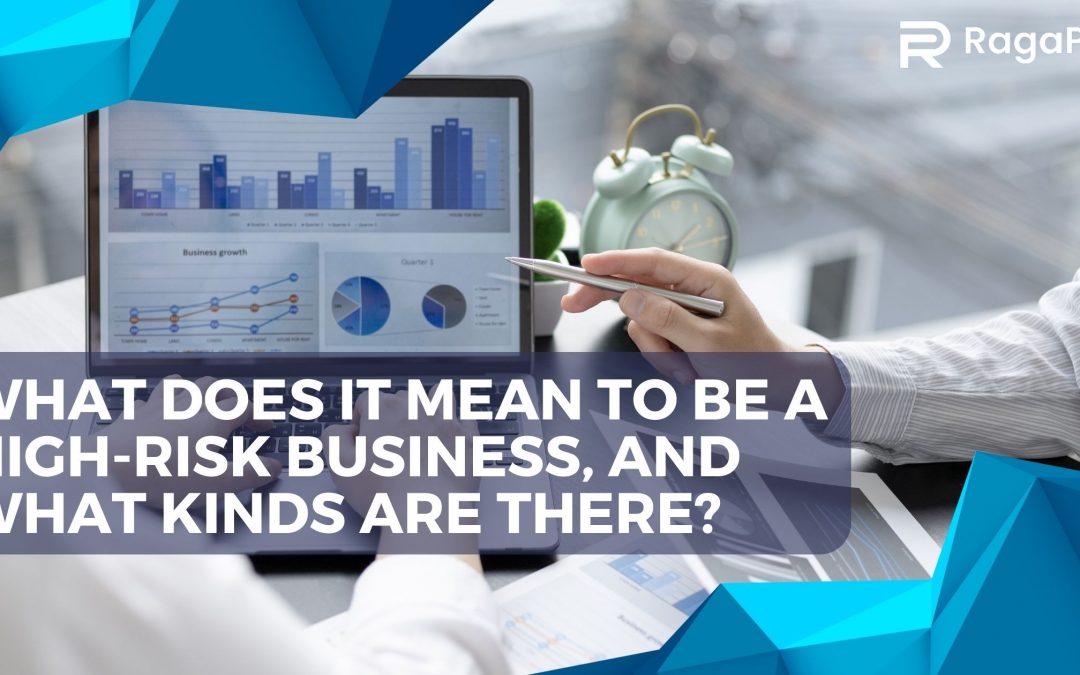The merchants have been divided into three distinct groups by the banking system. There are different levels of risk: high, medium, and low. All three parties-the buyer, the seller, and the financial institution—are at risk in high-risk business.
A business is considered high-risk if it operates in a high-risk industry and there is a chance that it will fail financially. One or both of these could be true. The first condition is about safety and health, and the second is about how well your business can continue to be profitable. Both situations, though, could affect your business’s ability to get loans, insurance, and merchant accounts.
Factors of High-Risk
High-Risk experts say that banks and merchant account providers consider a business to be high risk if it has a high rate of chargebacks, refunds, returns, and credit card fraud. A chargeback occurs when a merchant receives credit card payments but customers cancel purchases. Furthermore, banks consider businesses with poor credit histories (such as late payments) or no collateral to be high risk. Also, businesses in fields with a lot of accidents, whether fatal or not, are at a higher risk.
Considerations
If your business is high-risk, your insurance company may charge you a lot to give you the coverage you need to operate. For example, if you run an online vitamin store, you might have to pay a lot for errors and omissions coverage (E&O). Also, if your company doesn’t follow local, state, and federal regulations, it could face fines and lawsuits.
Types of High-Risk Business
Websites or travel agencies
This industry is considered high-risk because a customer might decide to cancel a ticket and ask for a refund. The acquiring banks, or PSPs, go through a lot of trouble to find the right merchant for this type of business. In the current market, most PSPs and buying banks will turn down this industry. If they say yes, they will put limits on it, like saying that the service must be done within two months, and no more than three. To protect themselves, they’ll also set aside 10% to 20% as a rolling reserve and put the payout on hold for 7 to 14 days.
Cryptocurrency:
Cryptocurrency went up like a rocket and is now falling at an alarming rate. People who have invested in cryptocurrencies are losing money because it is hard to sell them. Besides the fact that cryptocurrency is unstable, there is another problem: cybercriminals use it a lot.
Casinos:
This business has a lot of fun and light music, but it still has trouble finding a way to take payments. The main reason for this is that most governments don’t support this business model. Criminals have been seen spending stolen money at casinos more than once. The bank wants to focus on its main business by taking on only those merchants who will make them the most money while putting them in the least amount of danger.
Dating Websites
Users on many dating sites are tricked by fake profiles. The level of risk in this industry is very high. There may still be some overseas companies that can help with this.
Services for transferring money
It’s hard to find a solution for this business because banks are worried about money laundering.
Stores for gold and jewellery
Because the prices are so high, this is a well-known high-risk industry. It’s almost impossible to get a merchant account for this industry. If the merchant is approved, he or she may be asked to set a fixed reserve or a rolling reserve.
Charity is also a business with a lot of risk.
A charity scam is when call centers call people without their knowledge and use emotional intelligence to get them to give money. Banks don’t like this way of doing business, so they will usually turn down the application.
Online pharmacy
Medicine sales are considered high-risk because they could be bad for your health. Some merchants who sell non-controlled drugs may be able to use echeck solutions. They must have paperwork to show that the business is legitimate.
Adult Entertainment
It’s hard to guess what kind of videos an adult shop will stream. This is a big risk for banks and payment processors. They don’t want to make it easier for any company that promotes child pornography to take payments. Pornography is against the law in a number of countries. It is against the law to make and sell pornography in India.
Dealers in Aircraft
There is a good chance of a charge-back. The risk for the financial institution goes up with the size of the ticket. Imagine that a plane trader sold two jets for $1 million each. If one of the sales leads to a charge-back request, it will be terrible for the bank. The payment processor is in charge of making sure the seller gives the buyer a refund. If the vendor doesn’t give the money back to the customer, the only thing that could go wrong is the bank. The underwriting team at financial institutions does a lot of research before letting this type of merchant on board. Approval is possible, but not every aircraft dealer can get it. The dealer must have a strong company image and a strong financial position.
Conclusion
If you know how risky your industry is, getting a merchant account for a new business will be easy. You’ll save a lot of time and won’t have to deal with any setbacks. Risk management rules and procedures are checked regularly to make sure that payment service providers are following them. Because of these risk management strategies, consumers, businesses, and governments all stand to lose money. On the other hand, payment providers like Ragapay are more willing to work with businesses to make their services available to the public.

